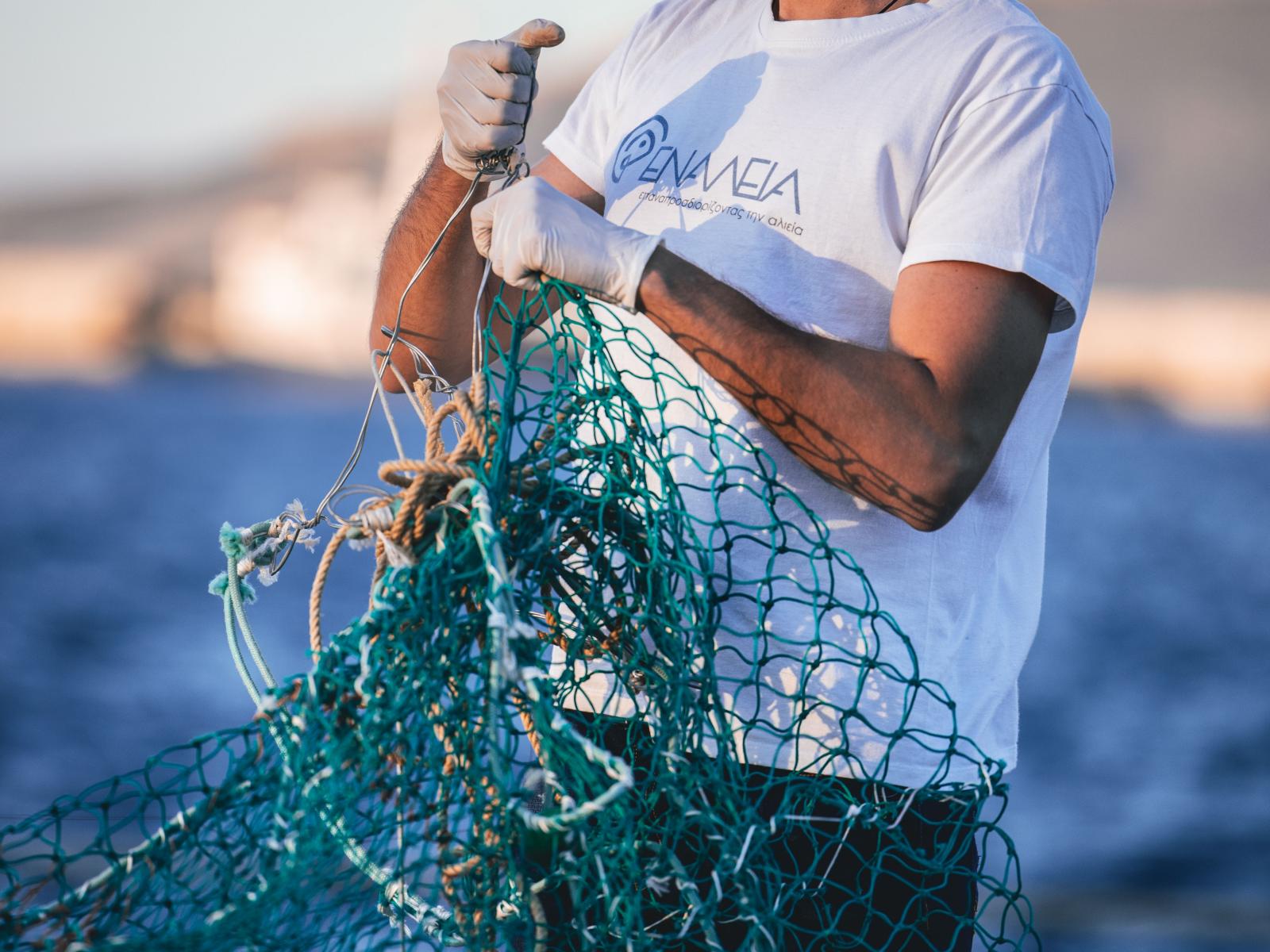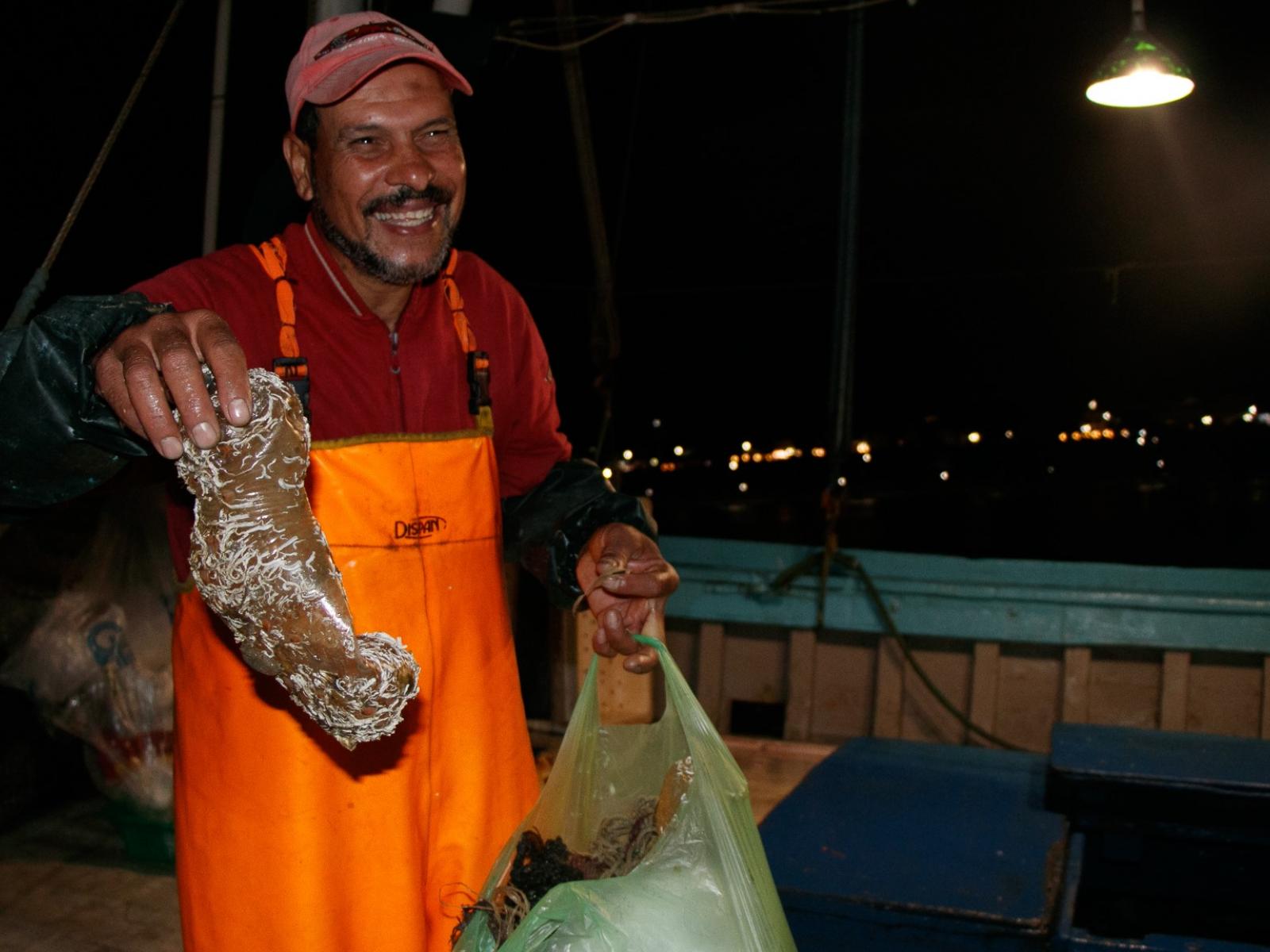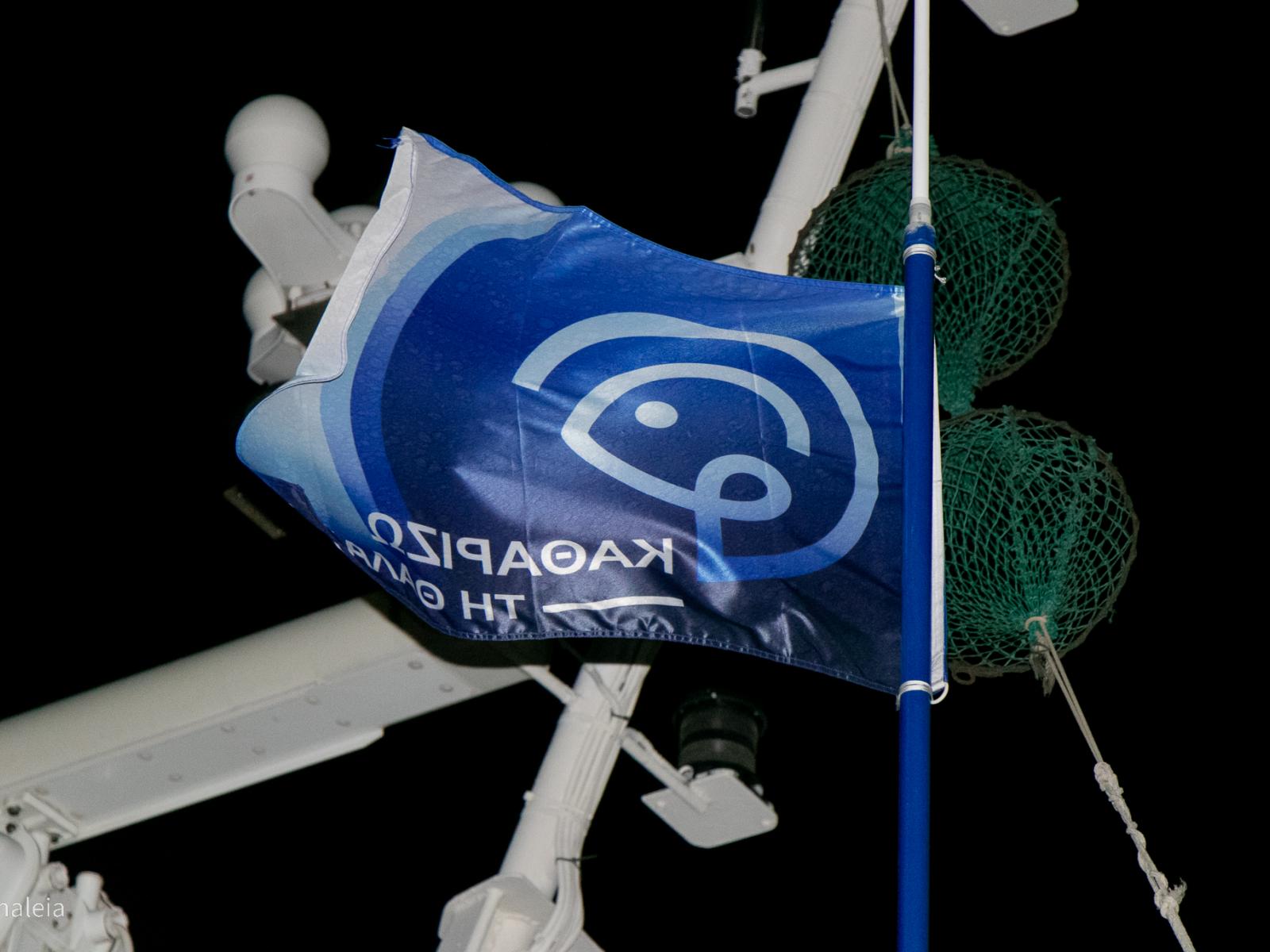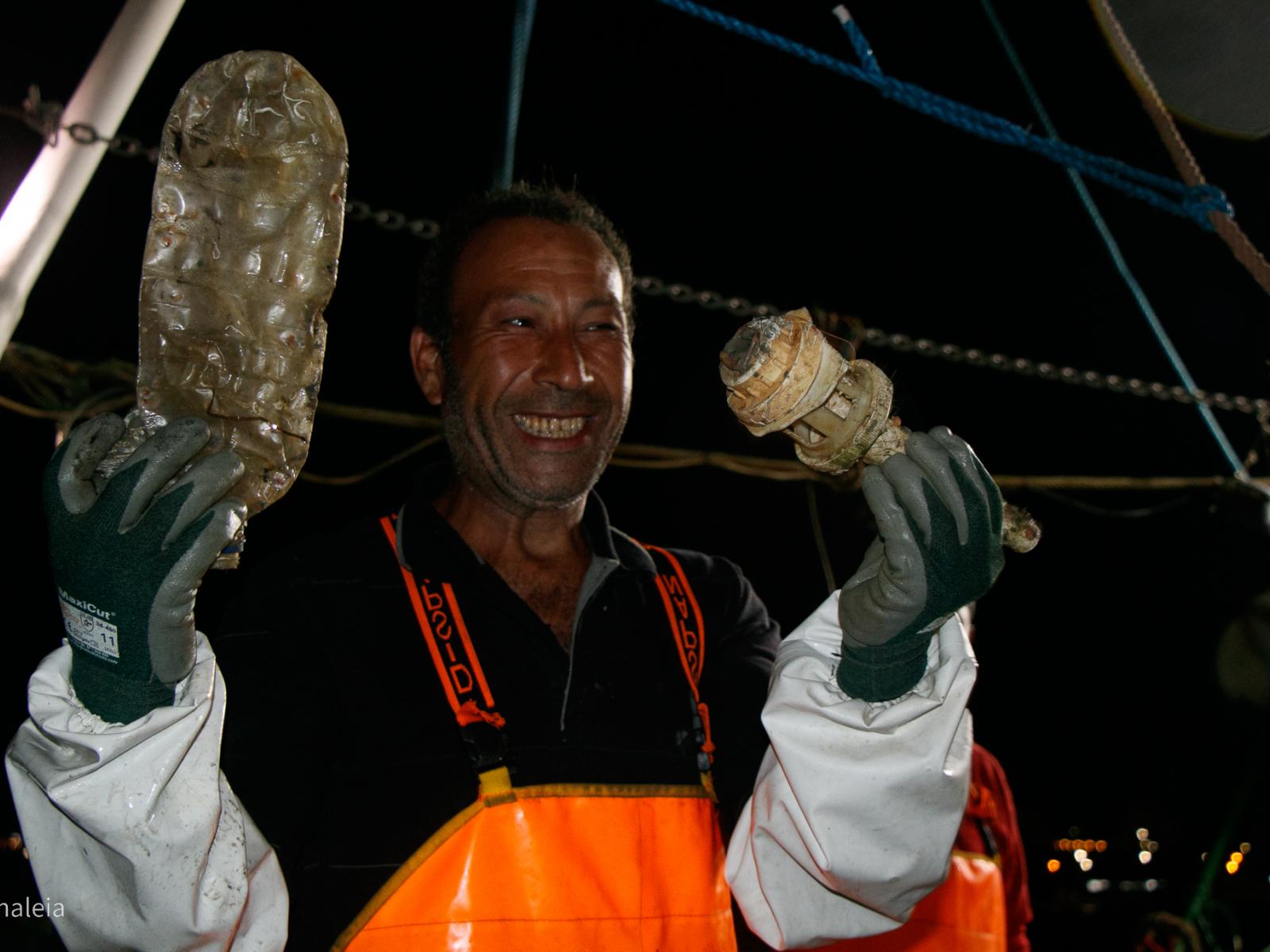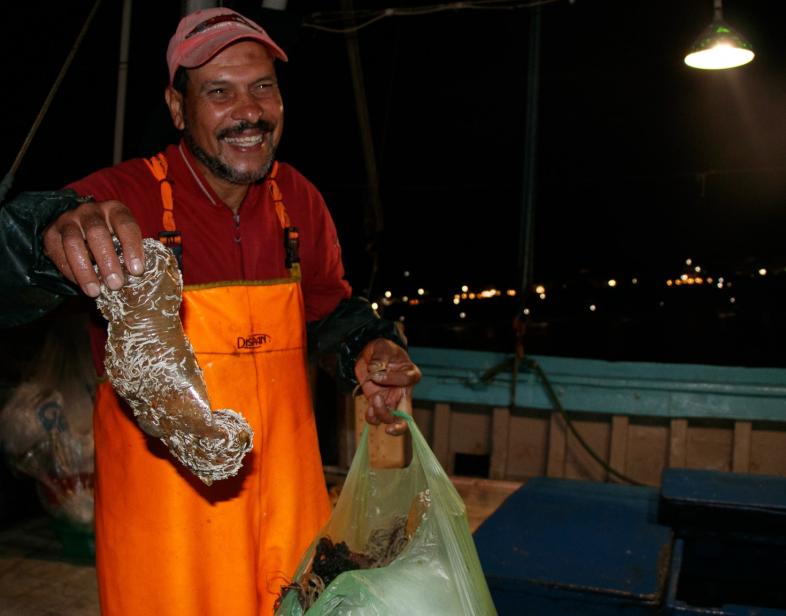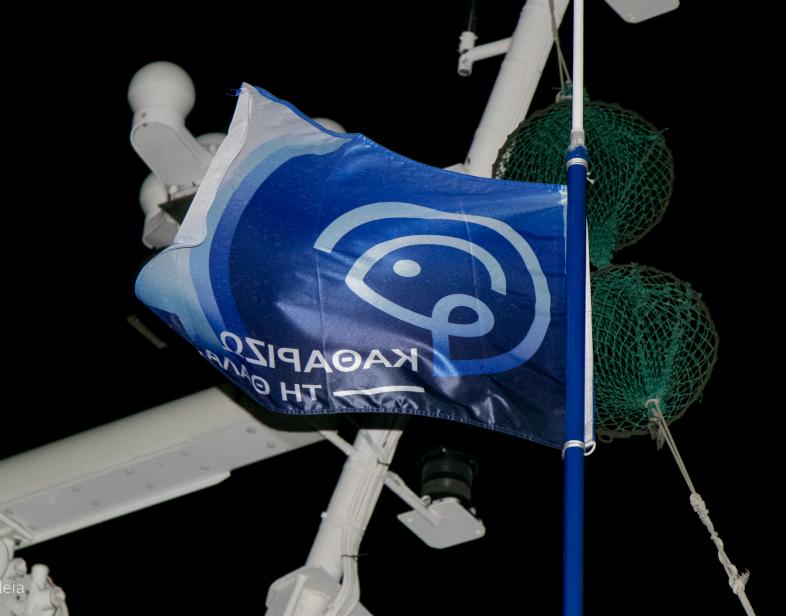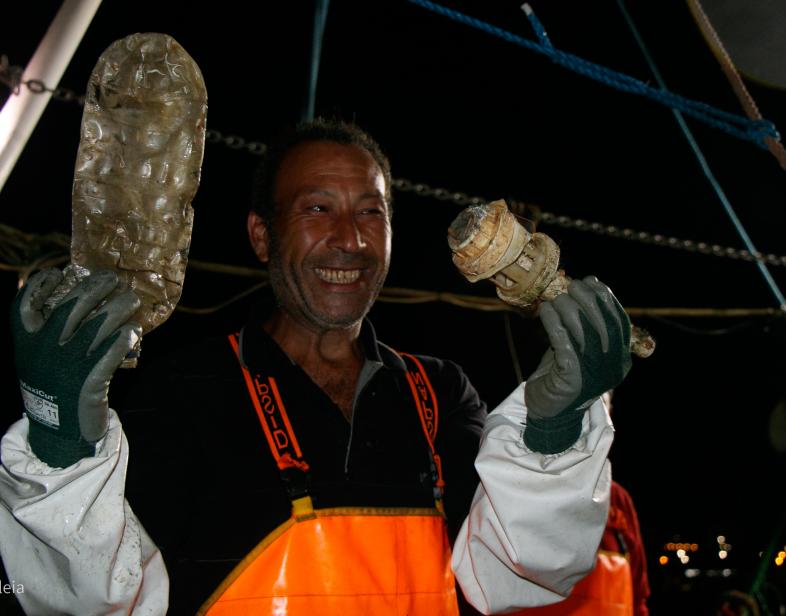An Overview Of Our Solution
Enaleia is a social enterprise with a vision to make the marine ecosystem sustainable and all our projects aligned with three pillars, Education, Clean the Sea and Prevention.
We started operating in 2016 as the first professional fishing school in Greece. Among fishing in general, we also taught the fishermen how to fish more sustainably by implementing methods such as fishing tourism. During that time, we discover that the fishermen also caught a significant amount of marine waste, mostly plastic, in their nets while fishing. This initiated us to start the "Mediterranean Cleanup" (MCU) project.
The MCU project aspires to implement a wide-scale cleanup of marine plastic in the Mediterranean sea ecosystem by utilizing fishermen's network. The marine plastic collected by the fishermen is going to be recycled and integrated into the circular economy.
- Population Impacted: 800
- Continent: Europe
Nombre
Apellidos
Tipo de Organización
Correo electrónico
Análisis de Contexto
The ongoing plastic pollution of the sea is equivalent to dumping 33,800 plastic bottles into the sea every minute. It is estimated that by 2050 there will be more plastic than fish in the sea (Ellen MacArthur Foundation). The international maritime trade and fisheries industries account for 20% of the plastic entering the Mediterranean Sea each year is fishing gear (WWF Report - 2019) while other research demonstrates that it might be up to 45% (The Ocean CleanUp, 2019). According to WWF (WWF report 2019) the plastics found on the seabed account for about 11% of all plastic waste flowing into the Mediterranean, and marine litter at this depth is “almost impossible to clean”. Ιt is prohibitively expensive to do so – with the cost of cleaning it $20 per kg. This waste, consisted mostly of plastic, causes irreparable damage to the ecosystem.
Describa la solución técnica que usted esperaba ser adoptada por su audiencia meta.
Our "Mediterranean Clean Up" solution is based on two things:
Firstly, we are providing each fishing trawler we collaborate with, bags and bins in order to collect marine plastic while fishing. In most of the ports we operate, we have a part-time worker who collects the marine plastic from the fishermen and disposes it into a press container. In some of the ports, this procedure is done by the fishermen themselves. When the container fills, we transfer this waste into special facilities to sort them out and send them for recycling/upcycling.
Secondly, in collaboration with local municipalities and port authorities, we create collection points for the fishing nets at each port. All year round fishermen can dispose of their used fishing nets instead of burning them in these collection points, dump them in a conventional bin or the sea. At the end of the year, we are sending the fishing nets for upcycling into our facilities.
Describa su intervención para cambiar el comportamiento de su audiencia meta relevante a su solución.
The first activity that takes place to enroll them in the project is the training of each fishing community. We motivate them by explaining their effect on their profession and how they can be part of the solution by cleaning plastic while fishing and preventing more fishing gear from entering the sea. It is estimated that by 2050 there will be more plastic than fish in the sea (Ellen MacArthur Foundation), and there can be no fishermen without fish.
Moreover, to ensure the active participation of fishermen of the fishing trawlers, and increase their productivity, a monthly fee of 0,5€ per kg of plastic is provided to them, which helps to incentivize the fishermen to join the action. Furthermore, participating fishermen are given a certificate from the project to show that they are actively cleaning the sea from plastic. Another incentive is that we provide them with a flag of the action, which they place in the boat, in order to make them feel more involved.
Our philosophy towards rewarding the fishermen, is based on the idea of creating a habit. Already, 80% of the participating fishermen from the pilot year, told us that they would continue the activity without the reward. Therefore, we expect that by October 2022, collecting marine plastic from the sea will be a habit for all the fishermen of the project.
Palancas de cambio de comportamiento utilizadas
Si es necesario, por favor explique el tipo de intervención en mayor detalle
Choice Architecture: The collection points are located within the ports, very close to the fishing trawlers. That makes them visible and easy to access by the fishermen.
Emotional Appeals: To persuade them to participate, we enable emotions such as:
Pride: Society often disrespects fishermen in Greece, and cleaning the sea can change this perspective so they can feel pride in what they do.
Joy: Participating in a project that aims to clean the ocean gives them pleasure.
Fear: Sharing with them the devastating results of plastic pollution in the ocean and its effect on their profession.
Information: In our first encounter with them, we share information and data about plastic pollution, in order to raise awareness about it.
Material Incentives: We pay them a monthly fee of 0,5€ per kg of plastic they clean from the sea. Also, we reward them with socks made from fishing nets.
Social Influences: By sharing our actions on social media, we improve how society perceives them.
Describa la implementación de su estrategia y solución.
- We address plastic pollution directly by utilizing the workforce of fishermen to clean the sea. Since the beginning of the project, we have clean in total 80.000kgs of marine litter and about 70.000 of is plastic. To ensure that this waste will never enter the ocean again, we utilize it by making useful products. The PET from plastic bottles goes to a fashion company in Spain and new clothes are made out of it. Fishings nets are transferred to an organization in the Netherlands to make into socks, carpets, clothes, etc. All the other plastic litter goes to recycling facilities.
- To ensure our solution is adopted and it enables change in the behavior:
We have frequent communication with the part-time workers in the ports, keeping us posted on the procedures.
We visit the associated parts to ensure fishermen's participation.
At the end of the fishing season, we give them questionnaires to provide us with feedback on the action.
- From the beginning, we build strong and fair relationships with the fishermen and all the stakeholders involved in the project. Guide them in the whole process and assist them if anything comes up. Make them understand that we can build a win-win relationship with them. Also, the part-time workers live in the areas we operate, so the fishermen already know them, making them trustworthy.
- To measure the success of the project, we track two factors. First of all, we track the amount of plastic we collect from the sea and what percentage is recycled/upcycled. Then the satisfaction of all parties that take place in the project.
- Obstacles
Fishermen's trust sometimes is hard to gain. With our knowledge of fishing, the frequent communication with them, and making it clear that we want to build a win-win relationship, we gain their trust.
Bureaucracy might be time-consuming. To overcome this, we have organized the procedures and have continuous communications with the stakeholders (public authorities, etc.)
Describa quién lidera la implementación de su solución.
Our leadership team consists of 3 young people, Lefteris Arapakis, Nikos Therapos and Zeta Kabardi.
Lefteris Arapakis is a social entrepreneur, a public speaker and he comes from a family of fishermen. Lefteris is the co-founder and director of Enaleia, a social enterprise with a vision to make the marine ecosystem sustainable.
Nikos Therapos and Zeta Kabardi both studied business administration and they were always fascinated by the environment and sustainability.
The three of us share the organization and implementation of the project. Lefteris Arapakis, who is the creator of MCU and started building the project from the beginning, has a more leadership and advisor role. Nikos Therapos and Zeta Kabardi are operating the project in all ports. This is done by diving the ports' locations and each of them is in charge of all procedures in one port. The reason for this is because we want to build strong and trustworthy relationships with all parties.
Incluya algunos de los actores clave con los que colaboró durante el desarrollo e implementación de su proyecto.
Towards our goal, we create partnerships and synergies with the following stakeholders:
- Fishermen associations; in order to organize the fishermen so as to clean and prevent plastic pollution in a coordinated and efficient way.
- Local communities; in order to embrace our action and feel part of it.
- Upcycling companies; in order to upcycle the fishing nets into socks and the PET bottles into t-shirts.
- Recycling companies; in order to recycle the collected elements that cannot be upcycled
- Ministries; in order to enlist our project under their auspices.
- Municipalities and port authorities; in order to set up collection stations for fishing nets, bins and signs for the project with their auspices.
- Sponsors; Foundations, Companies, NGOs and individuals who want to support our initiative by funding us financially or in-kind.
- Consultants; Organizations, academics and business experts who are acting auxiliary, in order to evaluate our process and maximize our impact
- Universities and research centers; in order to contribute to marine plastic utilization and marine pollution research and to have scientific support to the information we use in public.
¿Quién adopto los comportamientos deseados y en qué grado? Por favor incluya evidencia recolectada demostrando el cambio
The Greek fishermen community is the one that changed its behavior directly from our actions.
Firstly, there is a remarkable change in fishermen's mindset in terms of their awareness and the way they operate after our training and their participation in our project. Until recently, it was normal for them to return to sea the plastic they had collected, but now they have modified their traditional operational systems to receive, store, and transfer plastic to the port, where we undertake the rest of the process.
Also, the behavior change of fishermen reflects some more quantitative data. For instance, it is well to notice that now we are in a position of receiving proposals for collaboration from fishermen that were attracted by the "word of mouth”, while the performance per trawler in collected Kg per week are increasing as the project is embraced by society; making fishermen appreciate more the collaboration with us and be more productive.
¿Qué impacto tuvo sobre los niveles de contaminación del agua? Por favor sea específico e incluya las metodologías usadas
Each year thousands of tonnes of plastic end up at sea. This plastic threatens the sustainability of marine ecosystems. Also, there is a significant threat to human health, since a significant amount of this plastic is discharged to the shores or penetrates the food chain.
Through the MCU Project, we are able to collect and remove about 100.000 Kg of plastic from the sea, annually. This way, we create more viable circumstances for the development of local marine ecosystems. In other words, we protect organisms from plankton to fishes and sea mammals, from getting deadly injured or from eating plastic objectives. Also, though the MCU Project, the amount of plastic that ends up from the sea to inhabited coasts has been reduced significantly in the territories of our actions, improving the quality of life for people that live there.
¿Cuál ha sido el impacto de su solución en los desafíos de equidad?
Apart from our project's apparent environmental-related goals, we try to fight any imbalance that may exist within the spectrum of our activities as a social start-up.
An essential example is the fact that we have arranged certain agreements with the trawler owners to guarantee that the remuneration from the collection of the marine litter must be transferred to fishermen, who are by definition low-income workers.
Also, the vast majority of fishermen in Greece are Egyptian migrants who have the opportunity to get integrated better with local communities through their participation in our project, getting the credits for their contribution.
Moreover, a significant externality of our project is the fact that we have achieved to change the perception of the public opinion about the sector of fishermen- that was very underestimated until recently- proving that in the fight for a more sustainable future, there is no room for a class or any other social discrimination.
¿Cuáles fueron algunos de los beneficios comunitarios y sociales adicionales?
Enaleia, through the MCU Project, has enabled:
- The engagement of high-level stakeholders, such as ministries, municipalities and port authorities
- The engagement of local communities with the mobilization of 112 trawler fishing boats from 12 ports around Greece
- The employment of 8 people (3 of them are full-time) and 10 volunteers
- The increase in the income of more than 700 fishermen
- The rebranding of the fishing sector for the Greek public opinion
¿Cuáles fueron algunos de los beneficios ambientales adicionales?
Enaleia, through the MCU Project, has enabled:
- The collection of 80.000 Kg of marine litter, from which 70.000 Kg was marine plastic. It is expected that the collected marine plastic to be more than 100.000 Kg by the end of the year
- The reduction of the CO2 footprint required to produce certain products by around 55%, comparing to those produced by virgin plastic, through our upcycling actions
- The protection of the biodiversity of the local marine ecosystem
¿Cuáles fueron algunos de los beneficios de desarrollo sostenible?
Our objectives are aligned with the below UN SDGs:
#4: We provide people that have never attended university with knowledge about current sustainability issues
#8: We create local jobs in every port we operate and decent jobs in the fishing sector with fishermen catching more plastic and less fish
#12: We contribute to circular economy with recycling and upcycling actions
#13: We contribute to the reduction of CO2 emissions
#14: We contribute to the protection of the local marine ecosystems
Sostenibilidad: Describa la sostenibilidad económica de su solución.
Since we went through an extended growth stage of our organization, our resources were based mainly on grant funding. However, now being established in Greece, we have begun to redirect our resources mix, making wide but stable steps for our economic sustainability.
Specifically, we try to reduce the portion of the grants, increasing at the same time the revenues from our own activities. For this reason, we build strong partnerships with organizations that can utilize our marine plastic for recycling and upcycling purposes, creating remarkable revenue streams for us. The next step is the creation of our own products produced with our collected plastic, exploiting our brand and expanding our financial independence.
Retorno de la Inversión: ¿Cuánto costó la implementación de estas actividades?
Enaleia is a social start-up, so we do not aim to perform in a way that maximizes our financial Return on Investment. Also, the total amount of the grants that we receive and the revenues from the plastic that we promote for recycling or upcycling return directly back to the organization's core operations.
However, an index that our partners and we care about a lot is our Social Return on Investment, which includes the total social and environmental benefits derived from our activities. Specifically, based on the international empirical evidence, it is estimated that our impact so far is measured to be slightly over 1M EUR, through job creation, marine plastic reduction, while in the next 8 months it will be over 5M EUR.
¿Como podríamos replicar esta solución de manera exitosa en otro lugar?
There is no territorial limitation in terms of the application of the MCU Project. Actually, Enaleia plans to expand its activities in other Mediterranean countries, like Italy, shortly. Also, there are many probabilities for Enaleia to reach other continents, beginning with South-East Asia, trying to transfer its knowledge and capabilities where the vast quantity of the global marine litter is located. Our target is to share our know-how helping other countries to apply what we have achieved successfully in Greece, optimizing the social and environmental benefits derived from our organization.
For the above-mentioned replication actions, we have already begun the communications with the local fishermen associations and other startups that are close to the spectrum of our activities, which would help us to penetrate those areas. Regarding funding, at the initial stages, we will use our current resources, planning to exploit the benefits from the economy of scale in the future.
